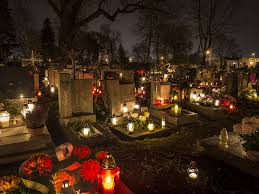
Ghazals Of Ghalib
The Almighty Of Rekhta
Mirza Asadullah Khan (Ghalib)-27-12-1797(Agra) To 15-02-1869 (Delhi)

Interpretation-Ghazal-82
1.
People who are free do not grieve over misfortunes except for a moment,
As if these people light the candle of the mourning-chamber with lightning.
(He says we are free people. The way lightning flickers for only a moment, in the same way for us, the thought of grief comes and at once erases, its effect does not remain even for a brief period.)
(We are free of worldly relationships. For this reason, grief too is unable to keep us captive for very long.)
(Lightning, which is the cause of grief, is also the cause of its removal. The oneness of non-existence and existence, affirmation and negation, is scattered throughout all Ghalib's poetry. This verse is a beautiful example of it.)
2.
There is a sequence of pictures of former enchanting gatherings that uncontrollably pass before the gaze and then disappear,
The way in an idol-house the glimpse of beautiful ones is now here, now gone.
(He has called Thought a card-player and himself a page-turner, so that an interpretation of uncontrollableness has been created.)
(The page turning of cards means the way card-players repeatedly spread out the cards with their fingers and keep on looking at them.)
(This simile is entirely new, and up to this day has not been seen in anyone else's poetry.)
(We are not card-player, we are not thought itself. What we are is the page turning process. We are random, blindly mutating assemblages of scenes, memories, images. Even if these images are real memories rather than fantasies, and even if they are of wonder and delight.)
3.
Despite the fact that our species has created a commotion, a noise in the whole world, in reality our existence is nothing.
So it is as if we are lamp in the bedchamber of the heart of Moth.
(The fire of ardour that is flaming up in the moth's heart cannot be seen. Indeed people only see his restlessness when he burns in the candle. The same situation is that of our existence.)
(There is a great deed of commotion in us, but the commotion is not apparent.)
(If we consider the sequence, we are the lamp display of the bed-chamber of the heart of moth. We are reduced by steady degrees to the smallest possible scope, not just to the size of the tiny, doomed, short-lived moth, but even to his still tinier heart, and in that still tinier bed-chamber, and in that his still tinier lamp-display. Yet we are a world.)
4.
If we have renounced the search, we did not do this because of contentment, rather no strength for search has remained in us,
In this respect we have become a blight on the resting-place of manly courage.
(The task of man is that they should make courage their resting-place, but here a contrary situation has been presented.)
(For us to stop on false pretences, to stop out of mere exhaustion and weakness, not contentment, would make us a blight or burden on the manly courage or place where we stop.)
5.
In our breast are all the hundred of thousands of longings have been imprisoned for a life time, neither has been fulfilled so far,
Our blood filled breast is a prison-house, in which those longings are imprisoned forever.
(Those longings that will never be fulfilled, he has constructed life-prisoner inmates.)
(It nicely reinforces the idea that none of them ever have come out, the whole supply of them, all that ever existed, are still trapped there, clamouring and suffering and filling the breast with blood, like prisoners banging vainly on the bars.)
-------

